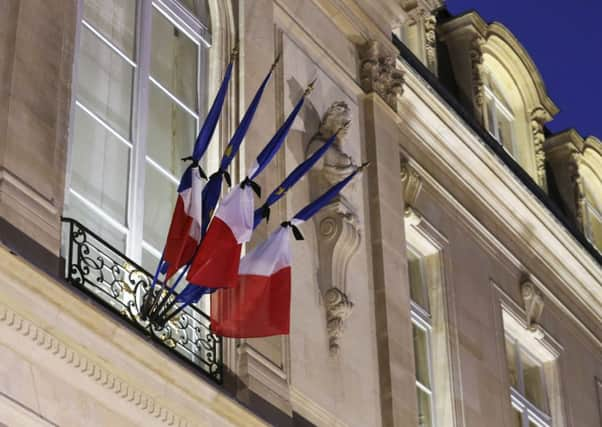Voice of the Paper: Paris murders – the pen is mightier than the sword


I’m writing this because I can.
Freedom of expression – enshrined in Article 10 of the European Convention on Human Rights – allows me to say whatever I want, so long as in doing so I am not contravening other laws by inciting violence, or breaching privacy or copyright, for example.
This basic human right has come under regular attack throughout living memory, and beyond.
Advertisement
Hide AdAdvertisement
Hide AdFrom the Nazi book burnings and stifling of the German arts during the Second World War, to last month’s threatened cancellation of American political satire film The Interview due to a promise of ‘merciless retaliation’ from the North Korean government – the ability to show dissent or comment upon society through the arts has had to be defended across generations.
Yesterday’s terrorist attack on French satirical magazine Charlie Hebdo’s Parisian office is the latest barbaric act by individuals intent on silencing free speech – ironically, their own way of expressing their message is clearly way outside the confines of what law and basic human morality would allow.
Although a world away from the (still hugely important) community reporting we do here at our newspapers, it always feels like a sword in the stomach to hear of a fellow journalist having been killed or taken hostage, simply for being bold enough to make the truth known.
But the pen is mightier than the sword, or the gun, or the knife – and human endeavour has always been documented through social commentary in the free press, and in the forms of literature, cinema and art.
Advertisement
Hide AdAdvertisement
Hide AdThey say history is written by the victors, but I think a truer saying would be that it is written by artists. They are the window to society at ground-level in spite of wider clashes and policies. Satirical cartoons such as Charlie Hebdo’s are just one example of this.
The magazine’s editor Stéphane ‘Charb’ Charbonnier – one of 12 people including eight journalists and two policemen killed yesterday – is reported to have said: “I’d prefer to die standing than live on my knees.”
This reveals all too hauntingly that he understood the risks associated with speaking out, even in the modern age, especially as the magazine’s office was torched in 2011 after it mocked Islam on its front page.
The outpouring of emotive sketches from other cartoonists showing solidarity with Charlie Hebdo since yesterday’s killings show that thankfully, they will not be silenced.
Advertisement
Hide AdAdvertisement
Hide AdIt has been argued that mass media coverage of recent terror incidents such as yesterday’s massacre and the recent cafe hostage killings in Australia are merely feeding terrorist organisations’ notoriety.
But to allow such acts of barbarity to go unreported and carry on in the dark would be to surrender our right to freedom of speech, and forego the opportunity to show a united front with fellow nations in their time of need.
We each have the ability, the right and the responsibility to stand in the face of terrorism, and not fall before it on our knees.